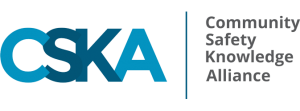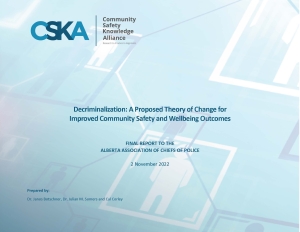Current Projects
Police Operational Independence and the Rule of Law: Improving police governance and accountability
When functioning properly, the police governance and accountability system serves to uphold the rule of law, foster public trust and confidence, and support ethical decision making and problem solving. But when it is out of balance, public trust and confidence are affected and there is a corrosive effect on the rule of law. Furthermore, conditions are created in which any of the ecosystem constituents can act inappropriately – even when it is with ‘noble cause’.
This report aims to clarify the relevant Canadian jurisprudence and provide an understanding of how knowledge and understanding of the doctrine, together with its practical application, can be improved. The report provides a synthesis of established law, and interpretations of the law by a series of major commissions of inquiry, largely confirmed through an extensive interview program undertaken for this study.
Decriminalization: A Proposed Theory of Change for Improved Community Safety and Wellbeing Outcomes
The societal, economic and human costs of problematic substance use in Canada weigh heavily on everyone, in one way or another. The idea of decriminalizing simple possession of illicit substances has generated considerable debate in Canadian society. Over the past 18 months, there have been growing calls for decriminalization from multiple constituencies.
Against this backdrop, the Alberta Association of Chiefs of Police (AACP) engaged CSKA to support their organization be better positioned to:
• Develop a contextualized understanding of where, how and why decriminalization may enhance community safety and wellbeing outcomes; and
• Play a leadership role in achieving whole-of-system capacity alongside reforms toward decriminalization.
Police Budgeting Review
Determining appropriate levels of funding to enable police
agencies to meet current needs and expectations, while shaping
their approaches to meet future community safety and well-being
expectations has never been more important. Rising costs of
policing, the changing nature and understanding of crime and
harm, together with broad-based calls for social change are
among a number of key trends backstopping efforts by
progressive police and other social system leaders to reshape how
policing and community safety and well-being services are
organized and delivered. How police are funded during such
dynamic times of change matters.
It is against this backdrop that the Edmonton Police Commission
(EPC) and the Peel Regional Police Commission (PRPC) engaged
the Community Safety Knowledge Alliance (CSKA) to explore how
to ensure a funding system that allows the police to remain
flexible to adopting alternative service delivery models and
approaches to meet emerging exigencies.
Enhancing Cyber Security in Agriculture
The Community Safety Knowledge Alliance (CSKA) today announced its involvement in a project that will contribute to enhancing cyber security in Canada’s agriculture sector. This project is funded by Public Safety Canada’s Cyber Security Cooperation Program, as part of its commitment to build a safe and resilient Canada.
Work completed in the project will strengthen the cyber security of Canada’s agricultural system in support of domestic food security; rural economic development and resilience; and national prosperity anchored to our international reputation for an agricultural supply chain that responsibly addresses global priorities related to food production, food quality, and environmental stewardship.
Completed Projects
Thompson Community Safety and Well-Being Plan 2021-2024
Over the course of 2020-21 the City of Thompson and the Community Wellness and Public Safety Advisory Committee spearheaded a process of community engagement and research that culminated in this three-year Community Safety and Well-Being (CSWB) Plan facilitated by the Community Safety Knowledge Alliance (CSKA). This work was initiated as a way to address concerning levels of crime and harm in the city and to strengthen community assets so that Thompson can be safer, healthier and more inclusive. While the issues confronting Thompson are complex, long-standing and often multi-generational, the community benefits from strong, creative individuals and organizations committed to turning this around to make Thompson a safe and healthy place to live, work and visit.
Technology-enabled Community Mobilization in Remote Communities
Summary
Review of the Manitoba Police Services Act
To ensure the Police Services Act (PSA) remains current with evolving standards and practices in policing and police governance, section 90 of the Act requires the Manitoba Minister of Justice to undertake a comprehensive review of the Act within a specified period. Following a competitive process, the Community Safety Knowledge Alliance (CSKA), a Canadian non-profit organization, was engaged to undertake this independent review.
Modernizing Police Leadership Competencies
The Canadian Police Knowledge Network in partnership with the Canadian Police College and the Canadian Association of Chiefs of Police launched a comprehensive research and consultation project including a subsequent report which assessed the current state of the competency- based management framework and tools utilized by various police agencies in Canada. The project was launched in late 2019 and completed by the Community Safety Knowledge Alliance (CSKA) in March of 2020.
Police Leadership Competencies – Survey
Under the direction of the CPKN National Advisory Committee’s Competency Sub-Committee and the Canadian Police College, the Community Safety Knowledge Alliance (CSKA) undertook a short study to ascertain the purposes for which competencies are currently being used, what model or derivative thereof are in use, and the degree of satisfaction organizations have with their current model. The organizations are looking to provide a competency framework that will be consistent across CPC leadership development initiatives.





